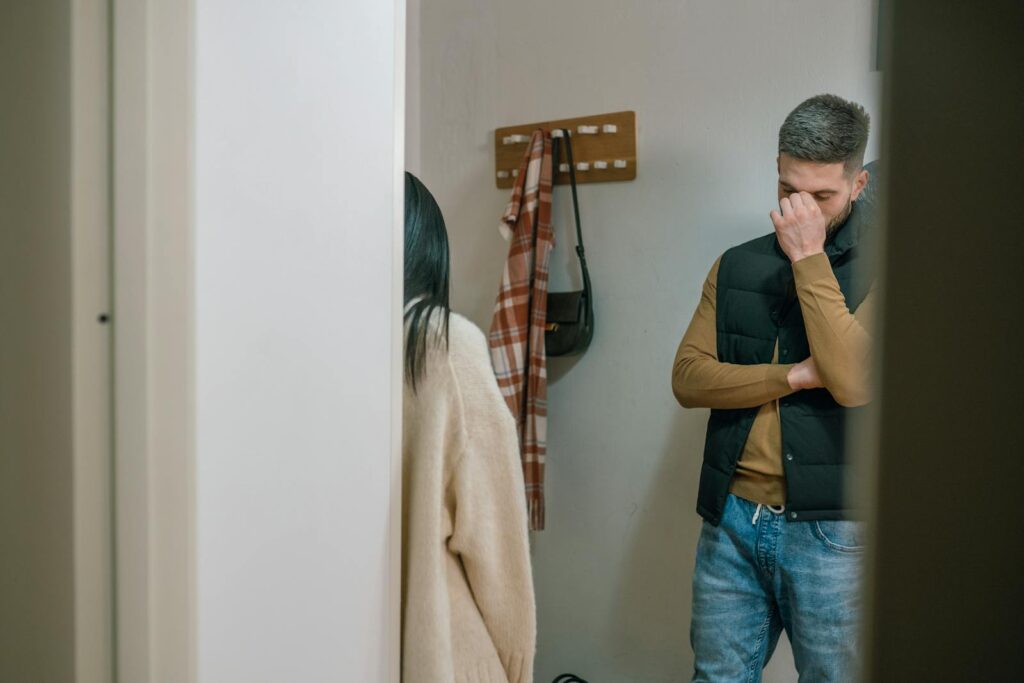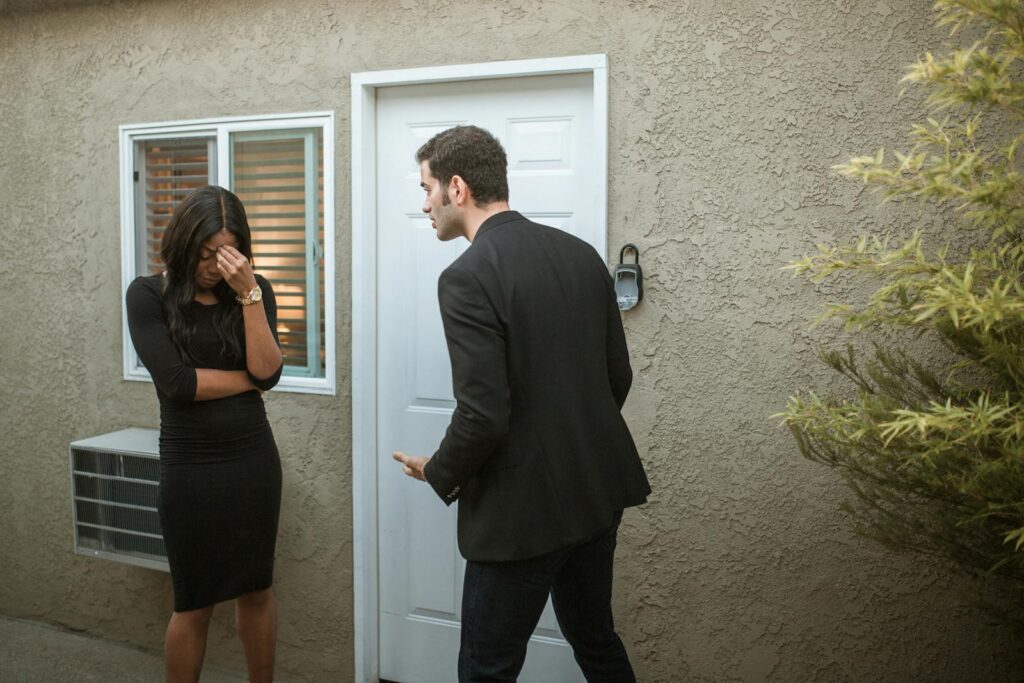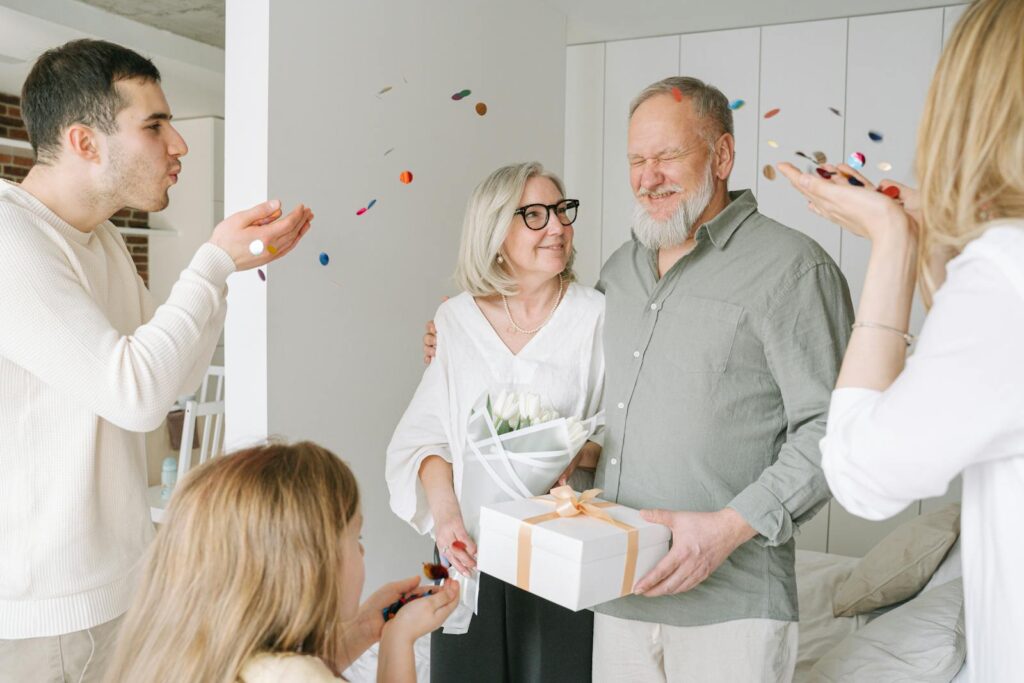
It rarely happens all at once. One day, things feel easy and familiar; the next, something feels slightly off. A quiet distance grows, small irritations pile up, and suddenly the warmth that once filled the room starts to fade. An unhappy marriage isn’t always loud or obvious—it’s often built on slow neglect and unspoken feelings. Still, understanding where it starts can open a path back to something real.
Lack of Communication

When conversations turn into logistics instead of connection, love loses its air. You talk about groceries, bills, or plans, but never about what’s going on inside. The silence between sentences gets heavier. It’s not anger—it’s distance. Slowly, two people start living beside each other instead of with each other, like roommates who share the same table but different worlds.
Emotional Neglect

Sometimes it’s not what’s said but what isn’t. You stop asking how the other person really feels because the answers might be uncomfortable. Small things that once mattered—checking in, offering comfort, noticing—fade away. The room feels colder, though nothing’s changed drastically. When emotions go unnoticed long enough, love begins to shrink and starts surviving only on memory instead of care.
Unrealistic Expectations

People enter marriage with quiet ideas about how it should feel: perfect understanding, constant harmony, effortless love. But when life gets messy and those ideals fall apart, disappointment sets in. You start comparing what it is to what you thought it would be. The gap between the two becomes a source of quiet resentment. Sometimes happiness depends on letting go of the picture you painted.
Resentment Over Time

Resentment doesn’t start with big betrayals. It’s built from the small, unspoken things—one-sided efforts, forgotten promises, things said in frustration. They pile up until kindness feels forced. You stop giving them the benefit of the doubt. Every little thing becomes proof of something larger. And even when you want to let it go, part of you keeps the list alive, to remember you’re right.
Neglecting Intimacy

Physical closeness often reflects emotional connection. When hugs turn mechanical or disappear altogether, something deeper is missing. It’s not about passion fading—it’s about not feeling seen. Sometimes one person reaches out while the other pulls away, and after enough failed attempts, both stop trying. The space between them becomes the most noticeable thing in the bed.
Financial Stress

Money quietly tests a marriage more than people admit. It’s not just about paying bills—it’s about what money represents: control and safety. When one person feels burdened about finances, it seeps into everything else. Dinner conversations turn tense, and every purchase feels like a battle. It’s never really about the numbers. It’s about feeling understood and equal.
Different Life Goals

Two people can love each other deeply and still want different things. Perhaps one person wants to move cities, or start a business, or have kids, while the other doesn’t. At first, you both tell yourselves that it’ll work out. But then time turns that hope into tension. And the more you compromise, the more you feel like you’re losing parts of yourself. Love alone isn’t always enough to bridge that gap.
Avoiding Conflict

Some couples think avoiding arguments means they’re doing well. But silence can do more damage than shouting ever could. When you don’t address problems, they don’t disappear—they make things more complicated. You start walking on eggshells, pretending things are fine. The calm begins to feel fake, and beneath it, the tension continues to grow, silently waiting for a small spark to set it off.
Taking Each Other for Granted

Comfort slowly turns into carelessness. You stop noticing the effort it takes to keep things running smoothly. The small gestures fade away slowly. You assume the other person will always be there, so you stop showing up the same way. But love needs tending. Without it, even the strongest bond can start to feel hollow and ordinary.
Holding Onto Grudges

Forgiveness sounds noble, but in practice, it isn’t easy to forgive. You might say you’ve moved on, yet you still bring up old arguments during new ones. And the past arguments stay alive in subtle jabs or cold silence. Over time, those grudges drain any sense of safety. The person who once felt like home now reminds you of all the times you felt wronged.
Emotional Affairs

Not all affairs involve cheating in the usual sense. Sometimes it’s a deep friendship that becomes a secret comfort, filling the space your partner once did. It feels innocent at first, then necessary. You start sharing your thoughts elsewhere. By the time you notice the line’s been crossed, you’re already halfway out emotionally. What’s left at home feels like a shell of connection.
Lack of Appreciation

It’s strange how easy it is to forget to say thank you. You get used to what the other person does—meals, chores, emotional labor—until it becomes background noise. Over time, unacknowledged effort turns into quiet bitterness. Everyone wants to feel seen. Without appreciation, even love starts to feel like work done for someone who no longer notices.
Changes in Identity

People evolve. The person you married at 25 might not be the same at 40. Interests shift, priorities change, and sometimes growth happens in opposite directions. It’s not betrayal—it’s life. But if both don’t make room for each other’s changes, you end up clinging to old versions of who you were. The marriage becomes a museum instead of something living.
Poor Boundaries with Family

Outside influence can quietly strain a marriage. Perhaps one partner’s parents are overly involved, or the opinions of extended family members are influencing decisions. The home no longer feels like your own. What begins as small interference turns into resentment. It’s hard to build closeness when there’s always a third voice in the room, offering advice no one asked for.
Loss of Friendship

Before the romance, there was friendship—the easy laughter, the shared curiosity, the comfort of just being around each other. When that fades, even love feels less sturdy. You stop sharing small joys and laughter and stop confiding in each other the way you used to. What’s left is the same old routine. And without that friendship, the relationship loses its warmth, like a house that’s slowly gone cold.

